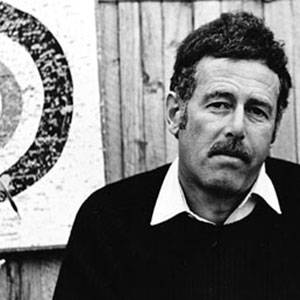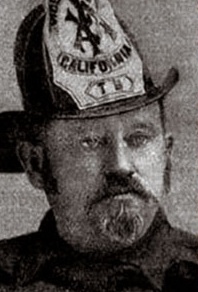【Watch The Hills Have Thighs (2010) full movie】
The Watch The Hills Have Thighs (2010) full movieSkiing Life
In Memoriam
In memory of James Salter, who died last week, the Dailyis republishing a series of essays from 2011, when Salter received The Paris Review’s Hadada Prize. In today’s piece, Louisa Thomas examines Salter’s essay “The Skiing Life.”
To learn more about Salter, read his 1993 Art of Fiction interview or one of his stories from the magazine: “Sundays” (1966), “Am Strande von Tanger” (1968), “Via Negativa” (1972), and “Bangkok” (2003) are available in full online.
 I read There and Then: The Travel Writing of James Salterfor the parts about skiing the way one reads A Sport and a Pastimefor the sex. In fact Salter writes about skiing the way he writes about sex: as something luminous, clean, somehow moral. This was a few years ago, when I was obsessed with skiing; I thought about it all the time. In Salter I sensed a sympathetic hunger, the longing for something transcendent, pointless, permanent, and always vanishing. There aren’t many good authors who write about skiing. Hemingway does a little. Salter does it a lot, as a way of writing about something else, just as writing about sex is a way of writing about other things: beauty, courage, obsession, mastery—mostly, someone else’s mastery.
I read There and Then: The Travel Writing of James Salterfor the parts about skiing the way one reads A Sport and a Pastimefor the sex. In fact Salter writes about skiing the way he writes about sex: as something luminous, clean, somehow moral. This was a few years ago, when I was obsessed with skiing; I thought about it all the time. In Salter I sensed a sympathetic hunger, the longing for something transcendent, pointless, permanent, and always vanishing. There aren’t many good authors who write about skiing. Hemingway does a little. Salter does it a lot, as a way of writing about something else, just as writing about sex is a way of writing about other things: beauty, courage, obsession, mastery—mostly, someone else’s mastery.
When I skied, or when I thought about skiing, a beautiful skier would stop me in my tracks. He would slide over a lip into a bowl or glade, or drop into a little chute out of bounds. His solid body would become liquid, slipping through the snow, as he found the fall line. I would watch his back and then fly after him, tracking him, fearless and afraid. “What enables you to learn?” Salter asks. “It’s simple: desire.”
In “The Skiing Life,” Salter describes learning to ski from an instructor:
Follow me closely, he says, as if you can, turn where I turn. Trying to do what he does, forgetting some things, remembering others, somehow you follow. The trail is narrowing, you are going faster than you should and farther, beyond your endurance … One morning you awake unaware that, mysteriously, something has changed. This day it comes to you … All day, run after run, filled with an immense, unequaled happiness, and at the end into town together, down the last, easy slopes, and so weary that you fall asleep after supper in your ski clothes, the lights burning throughout the night.
There are of course some who don’t need to learn, some who are almost born with it. Kids who grow up on eastern mountains are at home on ice and cruddy snow, although they dream of powder days. The kids out west have no idea how lucky they are. It is thrilling to watch a child hurtle past. You can see her future: she will slip through bumps, sleep on the floor, hike up mountains to ski down them. She will be powerful and fast. Years later, you will spot her from the chairlift, graceful and unmistakable. Even on my best days, the days when I belonged to the mountains, I would look for that girl. “There is always that lone skier,” Salter writes, “oddly dressed, off to the side past the edge of the run, going down where it is steepest and the snow untouched, in absolute grace, marking each dazzling turn with a brief jab of the pole—there is always him, the skier you cannot be.”
What Salter is describing is not quite jealousy; it is awe. Awe can create a sense of obligation. In the presence of that skier you can never be, skiing becomes a devotional act. I imagined that I would never stop, that I could make this my life. I would train, improve, worship where required. To read Salter on the skiing life is to be aware of this life’s reward: the feeling of a turn, the glide and cut, the nervy edges. The speed and focus. The sun on the mountains. The feeling of being free. Salter moved to Aspen, and I dreamed I might, too. I wanted to think the sport had a claim on me. I broke my elbow skiing when I was sixteen, racing a friend. You can still feel the screws and metal plate through my skin. A month later, I was on the slopes again.
Of course I fell, sometimes badly, but it didn’t much matter. Then I broke my other elbow, this time on an ice rink, and I stopped skiing. It wasn’t just that I was scared of being hurt, though it was true, I was scared. I forgot about the immense sensation of gliding. Instead I thought of what it feels like to fall.
Fallingis a word that appears often in Salter’s writing. Snow is falling, rain is falling, dusk is falling. Cities fall away as fighter planes rise. Fighter planes fall from the sky. Eyes fall on bodies. Men fall in a larger sense, loosing control in war or sex. Sometimes they only imagine they will fall. In Solo Faces, a man named Love is in the midst of a difficult climb. “It seemed he was somewhere—he had felt this many times before—where a terrible event, some suspension of physical law, might take place and everything he knew, was sure of, hoped to be, in one anarchic moment would dissolve. He saw himself falling. This feeling alternated with one of confidence. A layer of frailty had been stripped away and a stronger, more spiritual being remained.” This is the hope, to find power—but Love loses strength again. He watches his companion above him, climbing “in harmony” with the rock, amazed. “The physical acts are not hard to imagine but the endless succession of them, far up on a wall—that is another thing. And the distance beneath.” Love makes it to the top, exultant, and walking down the other side, slips and falls.
I read “The Skiing Life” now and I miss the skiing life. It is, of course, a life I never really had. Two years ago I did go skiing again, in Jackson Hole. On run after run, I was extraordinarily happy. On the chairlifts gliding up, I looked out for that girl, that beautiful skier. I wanted to see her very badly. I saw more patrolmen pulling stretchers than I could count.
At night I slept on a bench in a cabin in Grand Teton National Park. In the mornings we heard the avalanche warnings. I thought of Meta Burden, a beautiful skier who had died in Aspen in a flood of snow. Salter had written about her. She was a “goddess,” he said. “They dug her out in the dark and carried her body down.”
Louisa Thomas writes about sports for the Daily. Her book,Conscience: Two Soldiers, Two Pacifists, One Family—A Test of Will and Faith in World War I, will be published in June.




Related Articles